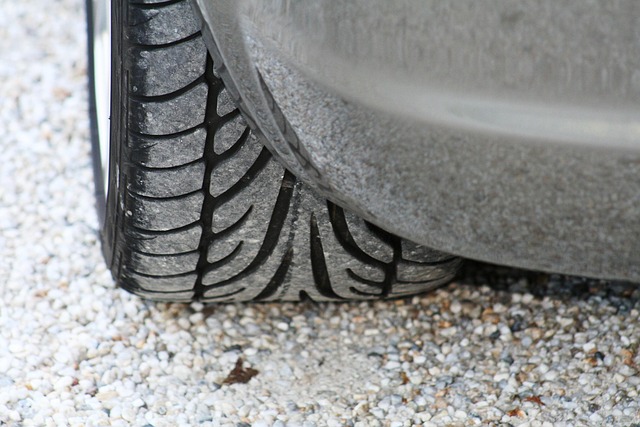Find the Perfect Tires for Your Needs
Selecting the right tires for your vehicle involves understanding various factors including tire types, performance characteristics, and specific driving conditions. Whether you're looking for all-season versatility, winter traction, or high-performance handling, the tire market offers numerous options to match your driving style and budget. Making an informed decision requires knowledge of tire specifications, brand comparisons, and pricing considerations to ensure optimal safety, performance, and value for your investment.

Choosing the right tires is one of the most important decisions you can make for your vehicle’s safety, performance, and fuel efficiency. With countless options available in today’s market, understanding the key factors that influence tire selection will help you make an informed purchase that meets your specific driving needs and budget requirements.
Buy Tires Online: Convenience and Selection
Purchasing tires through online retailers has become increasingly popular due to competitive pricing, extensive selection, and convenient delivery options. Major online tire retailers like Tire Rack, Discount Tire Direct, and Amazon offer comprehensive catalogs with detailed specifications, customer reviews, and professional recommendations. Many online platforms provide tire finder tools that match products to your vehicle’s exact specifications using your VIN number or tire size information. Online shopping also allows you to compare prices across multiple brands and retailers simultaneously, often revealing significant savings compared to traditional brick-and-mortar stores.
Car Tire Comparison: Understanding Key Differences
When comparing different tire options, several critical factors distinguish one product from another. Tread pattern design affects traction in various weather conditions, with symmetric patterns offering balanced performance, asymmetric designs providing enhanced cornering, and directional treads optimizing water evacuation. Tire compound formulation influences durability, grip, and temperature resistance, while sidewall construction determines ride comfort and handling responsiveness. Performance ratings for traction (AA, A, B, C), temperature resistance (A, B, C), and treadwear numbers provide standardized comparison metrics across different brands and models.
Guide to Choosing Tires: Essential Considerations
Selecting appropriate tires begins with understanding your driving patterns, climate conditions, and vehicle requirements. All-season tires offer year-round versatility for moderate climates, while winter tires provide superior cold-weather traction below 45°F. Summer tires deliver optimal performance in warm, dry conditions but lose effectiveness in cold temperatures. Consider your typical driving distances, highway versus city driving ratios, and whether you prioritize fuel economy, performance, or longevity. Vehicle weight, power output, and suspension characteristics also influence optimal tire selection.
Understanding Tire Specifications and Sizing
Tire sizing information appears on the sidewall in a standardized format such as 225/60R16, where 225 represents section width in millimeters, 60 indicates aspect ratio as a percentage, R denotes radial construction, and 16 specifies wheel diameter in inches. Load index numbers indicate maximum weight capacity, while speed ratings (S, T, H, V, W, Y, Z) specify maximum safe operating speeds. Understanding these specifications ensures proper fitment and prevents safety issues or performance compromises.
Tire Brand and Pricing Comparison
The tire market features numerous manufacturers offering products across various price ranges and performance categories. Premium brands typically command higher prices but often provide superior performance, longer warranties, and advanced technologies.
| Brand Category | Example Brands | Price Range (Per Tire) | Key Features |
|---|---|---|---|
| Premium | Michelin, Continental, Bridgestone | $120-$300+ | Advanced compounds, long warranties, superior performance |
| Mid-Range | Goodyear, Pirelli, Yokohama | $80-$180 | Balanced performance and value, good warranties |
| Budget | Kumho, Hankook, General | $50-$120 | Basic performance, shorter warranties, value-focused |
| Economy | Cooper, Falken, Nexen | $40-$100 | Entry-level options, limited warranties |
Prices, rates, or cost estimates mentioned in this article are based on the latest available information but may change over time. Independent research is advised before making financial decisions.
Installation and Maintenance Considerations
Proper tire installation requires professional mounting, balancing, and alignment to ensure optimal performance and safety. Many tire retailers offer installation services, while some online purchases include mobile installation options. Regular maintenance including pressure checks, rotation schedules, and alignment monitoring extends tire life and maintains performance. Understanding warranty terms, road hazard protection options, and replacement policies helps protect your investment and ensures long-term satisfaction with your tire purchase.
Selecting the perfect tires involves balancing performance requirements, budget constraints, and driving conditions while considering long-term value and safety implications. By understanding tire specifications, comparing options systematically, and choosing reputable retailers or installers, you can make an informed decision that enhances your vehicle’s performance and provides reliable service for thousands of miles.




